Trevor Hemmings: I got on well with Ginger but he and I would have clashed
Alastair Down meets the high-profile owner with a stunning National record
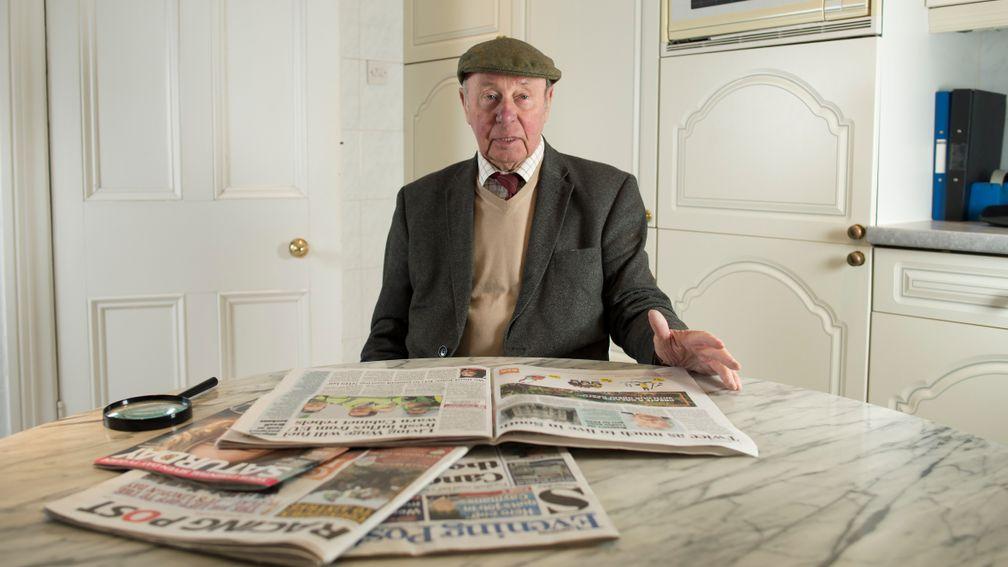
Trevor Hemmings, whose famous green, yellow and white colours were carried to Grand National glory by Hedgehunter, Ballabriggs and Many Clouds, has died aged 86. Here, we recall the influential owner in an archive interview first published in the Racing Post on April 3, 2016.
To most of us the annual publication of The Sunday Times Rich List is a news dispatch from a far-off galaxy – little more than soft porn for the wallet and food for the green-eyed glands of envy. Doubtless some who feature in it monitor their rise and fall with obsessive fascination, but we normal folk know £20 million here or there makes no odds.
Oh all right, they might here but they don't there.
It is hard to imagine Trevor Hemmings fretting unduly about his place in the hit parade of the inordinately well-heeled. But he is a regular in the top 200 and I would suggest he merits his position infinitely more than many of the chancers and City card sharps on the list of the great but not necessarily good.
Put it this way. When Hemmings was born in 1935 there were 44.6m people living in Britain, compared to 64.6m now. His beloved father Monty worked at the three-mile long, one-mile wide Woolwich Arsenal that, at its peak in the early 20th century, employed 100,000.
It's a fair estimate that, at birth, Trevor had around 43m ahead of him in the queue for great wealth. To have overtaken all but 150 or so represents a journey from working-class London kid to philanthropist and benefactor that few will travel again.
And at Aintree on Saturday, customary cloth cap welded to his head, the 80-year-old will enjoy a set of sights unique to him among all owners in Grand National history.
In Hemmings' box there will be his standard layout of four tables of eight and just before the first race, chairs will be vacated to watch his past stalwarts, Ballabriggs and Hedgehunter (the last ever to return to that adored but inadequate glorified garden shed of a winner's enclosure) take part in the parade of former conquerors.
And as the course levers itself up to levels of scarce-containable nerves and excitement at around 5.15pm, Hemmings will watch last year's winner Many Clouds go to post heavily fancied for a repeat victory.
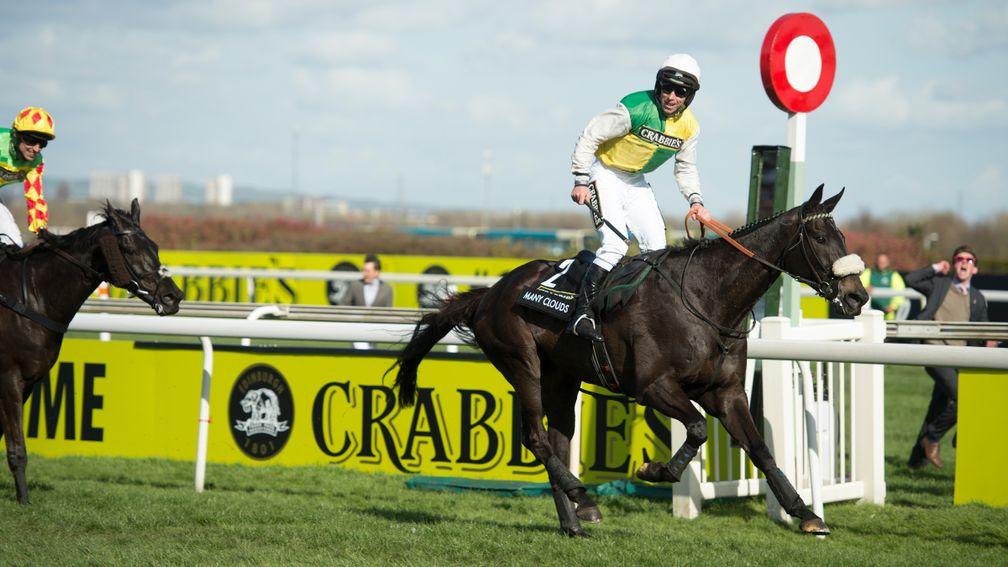
Never before will one owner have had the bone-marrow-restorative satisfaction of seeing three of his own Grand National winners tread the Aintree turf on the afternoon when jump racing has its fleeting ten-minute straddle of the sporting world.
In 1940 the family Hemmings uprooted from London and Woolwich Arsenal and Dad took up a job at the Chorley Ordnance Factory near Preston – same trade, safer place.
It was a timely move. The blitz began with a daylight raid by 950 aircraft on September 7, followed by 57 nights of bombing which destroyed much of the East End and City.
Hemmings says: "I clearly remember the barrage balloons in the sky, getting locked into the Anderson shelter and everyone going into big air-raid shelters in the tube station to escape the bombs.
"I can recall climbing mountains of rubble with other kids and rows of houses that had just disappeared. We lost a lot of family, including my Uncle Paddy, in the blitz.
"I was just over four when we moved up here to 9 Lynton Avenue, Leyland. I soon dropped my cockney accent or I wouldn't have survived."
But survive he did and, although he now lives on the Isle of Man, it is Lancashire, around Chorley, near Preston, that is his adopted home and heartland – and where he is to be found at his Gleadhill Stud for at least two days a week.
Here around 20 of the youngsters, three- and four-year-olds, are taught manners by Hemmings' racing manager, the ever patient Michael Meagher, before decisions are made as to which of 15 trainers are to be entrusted with their futures.
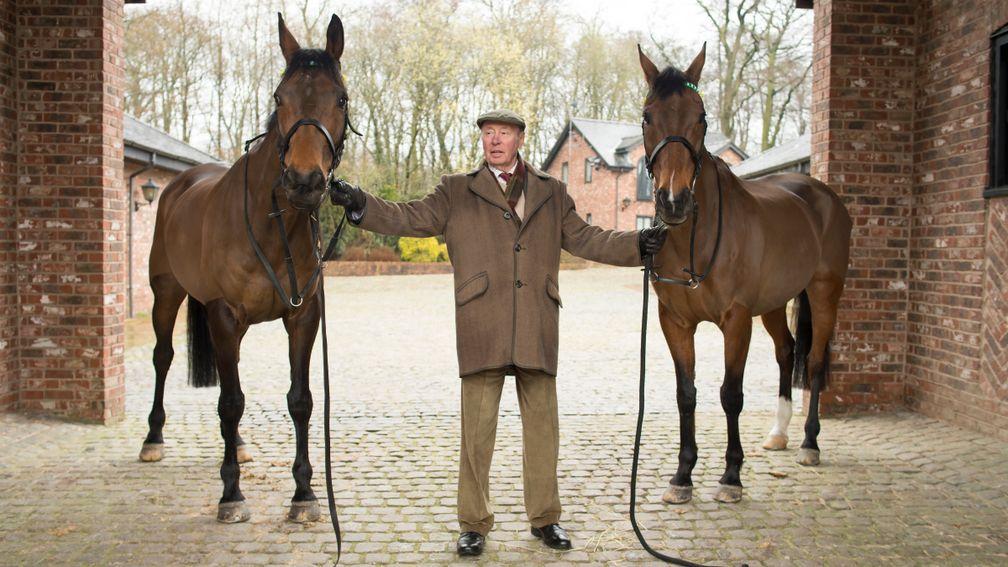
We walk out into the yard where Ballabriggs and Hedgehunter are being prepared for the parade of the old and bold on National day. At 15, Ballabriggs looks in fine order but it the five-years-older Hedgehunter, good enough to finish second in a Cheltenham Gold Cup, who grabs the eye.
You could fix your tie using his coat as a mirror and the pair fit what is known as a Trevor Hemmings type, four-square, strong sorts born to jump a fence. Neither of them could spell Flat.
Most Hemmings horses are bought by his great chum David Minton, who says: "Trevor is very patient and doesn't like spending money, which is why he loves stores! Albertas Run was €22,000 as a three-year-old, while Ballabriggs and Many Clouds were bought as yearlings for €32,000 and €6,000.
"He's an extraordinary man and, at heart, a private one. He's not one for handing out his number to any Tom, Dick or Harry and he hates publicity. But you won't find anybody more loyal or who thinks more long-term than he does – about life, business or horses."
Three-time Grand National-winning owner Trevor Hemmings dies at 86
As we go around the yard Meagher treats his boss with an air of gently exasperated affection. Opening one box he says: "This is another of Trevor's fliers!" – meaning the four-year-old was one Hemmings insisted on having at the sales entirely off his own bat.
Meagher adds: "There's plenty wrong when you look at him," – and this is clearly the annoying part – "but he's already shown me he's a racehorse."
Many Clouds was another Hemmings 'flier' and Meagher shakes his head with a rueful smile and says: "He has plenty of input in the yard because he enjoys it so much. Mind you, we have our moments!"
Various articles in the media describe Hemmings as "reclusive" and "enigmatic". But that is because he regards his business as being his own, which it is in more ways than one. The empire he has built is testament to an unforgiving self-drive that emerged when he was no more than a child.
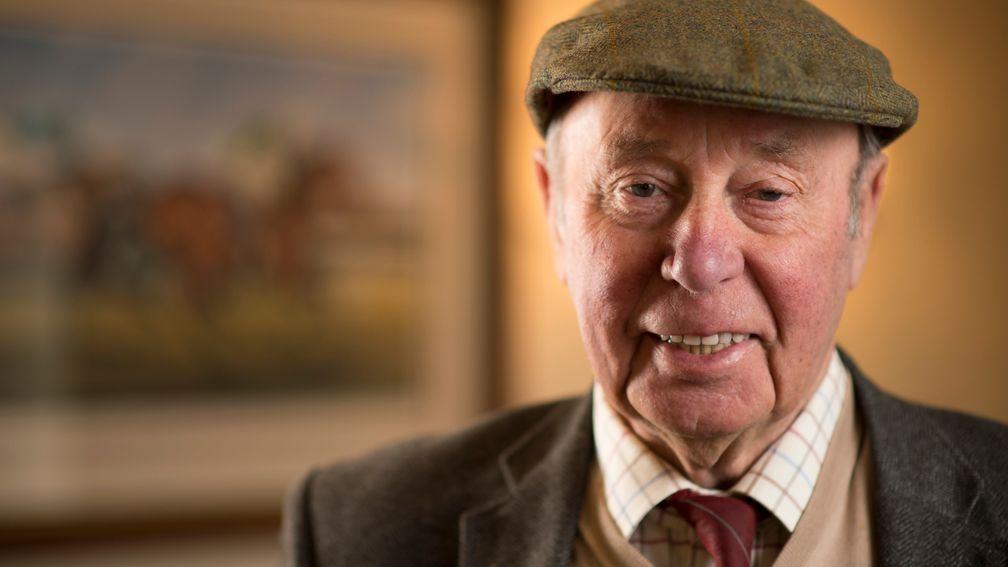
He was a workaholic in short trousers and says: "I looked at families who were not well-off and then at how the better-off managed things. It was very simple – in the homes where people were doing well the husband worked longer hours. I noticed that when I was very young.
"I listened to people who had achieved things and it struck me the best way was to work hard from the beginning.
"I had two paper rounds and sometimes three, which meant being a bit late for school sometimes. By the age of ten I was working as a petrol-pump attendant, by 11 I had a grocery round for Harry Hindle in Bent Lane with a horse and cart – the horse was called Klondike and every Saturday there would be a 10lb sack of spuds for Mrs Smalley in Golden Hill.
"I worked anywhere I could to make a shilling – skimming the top off the milk in a dairy and raising day-old chicks on warm bags of cement."
Trevor Hemmings obituary: from working-class Lancashire lad to billionaire tycoon
Hemmings' recall of detail is sparkling clear, but the memory of a child has that insatiable sponge-like quality that gets ruined by growing up and the appearance of the unavoidable distractions of bills and responsibilities.
To listen to him is to be transported to a different age. He says: "Class sizes at school were smaller than now and you could ask things openly and not feel embarrassed.
"And there were other places to learn – I went to night school and day-release courses. It was a different world and during the war, between the ages of four and ten, I'd go to see my mother's parents, who'd been bombed out and moved into a pre-fab.
"I'd be put on the train to Euston wearing a tag with my name on and off I'd go – sometimes I'd be on the netting above the seats where the luggage went. You'd be in trouble if you sent a young kid off on his own like that now. London was not as it is now – everyone pulled together."
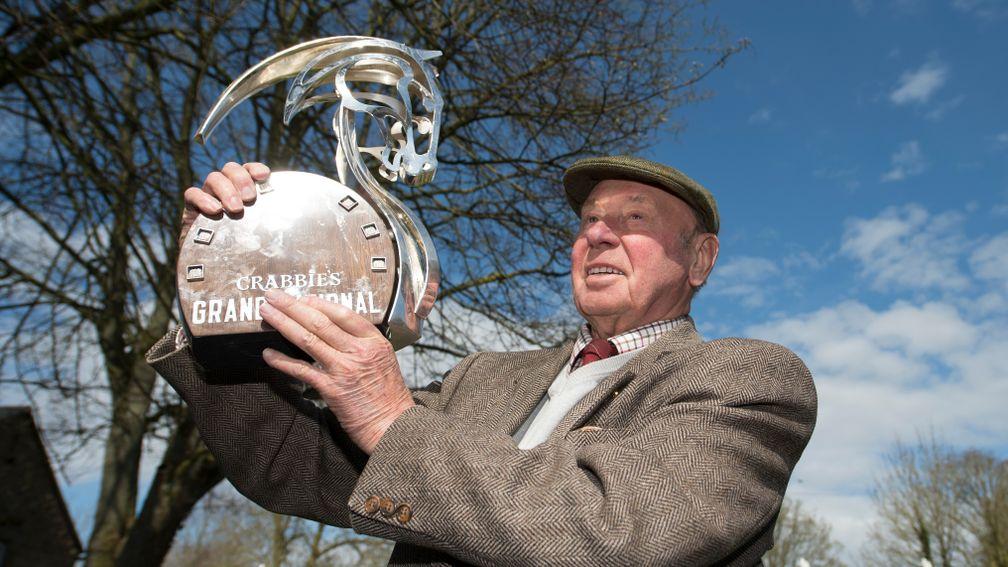
After a four-year apprenticeship as a bricklayer, Hemmings started his first building business in the 1960s with £12. It was sold to Christian Salvesen in 1970 for £1.5m.
Hemmings was on his way and formed a massively important alliance with the holiday camp entrepreneur Fred Pontin.
He says: "Fred had a daughter but no son and in a way I filled that role. He was a character and I learned a huge amount from him.
"We used to toss a coin to see who would cook breakfast the next morning and I endlessly seemed to end up with the frying pan – until I realised the coin always came down heads because it was double-headed.
"Fred has horses like Go Pontinental and Pontin Go and in 1971 he won the Grand National with Specify – although I didn't go to Aintree because he made me work that day. He ribbed me: 'You'll never have a National winner'!"
Perhaps the jibe from his mentor sowed a seed with Hemmings, who doesn't strike you as man who has ever believed any challenge is beyond him.
Hemmings eventually led a management buyout of Pontins and sold the business to Coral. Since then he has owned casinos, Blackpool Tower, hotels, countless pubs, racecourses, brought Center Parcs to Britain and owned numerous businesses plus a backbone holding of ten million square feet of commercial property.
Whereas most of Hemmings' horses are bought young, Hedgehunter was acquired as a seven-year-old as his owner was retiring to Canada.
In the Grand National of 2005 Hedgehunter led after the perennially unfortunate Clan Royal was carried out at the 22nd and Hemmings says: "He went about 15 lengths clear and I remember literally aching with the excitement.
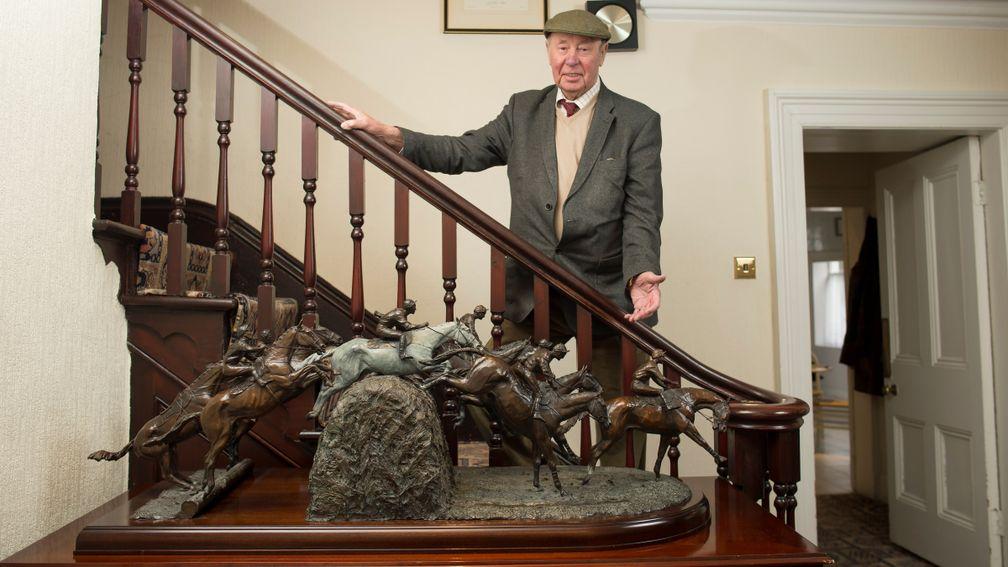
"I don't get tearful about my horses but I do get incredibly attached and involved. And, yes, there are many times when I wish my dad and mum had been around for moments like that, and to have seen other things I've done.
"They were Mr and Mrs Ordinary – but exceptional. Dad was lovely and Mum would scrub her front step until it was spotless. I'm like that to this day – always wash and wipe after my meal and people who work for me say 'stop doing the job I'm paid to do'.
"My parents died in their seventies – Dad died upstairs here in this house in my arms." Which, of course, is how it should be and you can tell exactly how important it was to him and remains so.
It is interesting that while Hemmings knew Ginger McCain for years, he waited until the trainer retired before having Ballabriggs with his son Donald and says: "I got on well with Ginger but he and I would have clashed because he said things he didn’t really mean and he could be bloody-minded."
Ginger would not have had a monopoly on being bloody-minded. Nobody makes hundreds of millions by holding the door open for others and saying "after you". But I reckon more folk swear by Hemmings than at him.
His charity funding has been endless, with the Princess Royal's Carers Trust to the fore, plus the Red Cross, RNLI and Samaritans among many beneficiaries. On the day of my visit he had been a visitor at his local Rainbow House for sick and challenged children around the corner. In recognition, he holds the honour CVO – Commander of the Royal Victorian Order.
A spry man, twinkling of eye, he stands tall and straight, probably because there is plenty of steel to his backbone. And he remains unsullied by wealth, largely because he is not the type to be fussed with its trappings.
The clue is that cloth cap, a badge for himself and a signal to others.
He says: "I have my breakfast wearing it. It stands for the working man in the North. And I've always felt like one of them."
Being in the wars
Soon after six in the morning, two dogs at his heel, Trevor Hemmings is out the front door of his Isle of Man home to have a walk around before returning to make himself some breakfast.
He describes his Isle of Man estate as "a good place to hide away", but in 2007 the world came and kicked in the door.
Suddenly Hemmings was to be seen about the place less and rumour abounded that he was ill. The fact was that he was busy trying to save his right foot – and it was a close-run thing.
He says: "I have been diabetic for 40 years and neuropathy of the toes – when the blood no longer reaches them and they go numb – eventually comes with the territory.
"Then I got an ulcer on my foot which would not heal. I have a man called Professor Owens to thank because he persevered with me over a couple of years. He was brilliant, first attaching synthetic skin and then my own.
"A lot is mind over matter. You have to be determined. I couldn't have been more disciplined and was exactly correct in everything I ate and drank.
"But there were spells in a wheelchair and then on a stick."
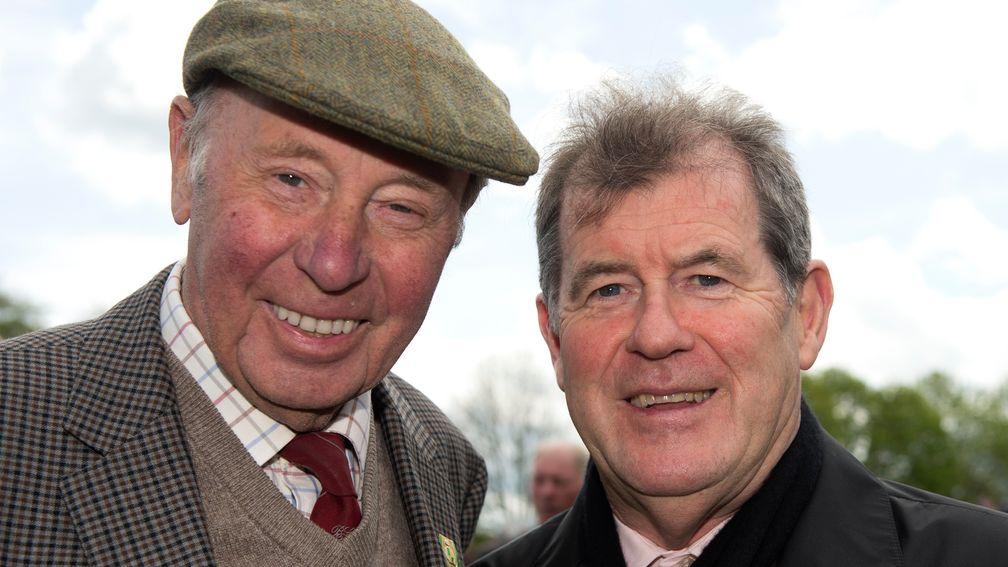
Typically Hemmings fought his fight privately and summoned all his stubbornness in order not to succumb. And he won through.
Then, at much the same time came a massive assault on the financial front in the shape of the banking crisis.
Chronic and breathtakingly irresponsible ineptitude at the Royal Bank of Scotland suddenly threatened Hemmings with disaster. The potential numbers must have run into hundreds of millions. He was under siege and he and his team of close advisers first circled the wagons and then came out fighting.
It was clearly a bitter battle which has left a mark, not so much in terms of money but in the mind. The horse numbers were cut by half and Hemmings is scornfully the wiser saying: "Banking had suddenly ceased to be conducted properly and that undermined the whole system.
"I had too many eggs in one basket but you go to a doctor expecting the best advice – not something that gives you a chronic illness.
"For a period of time you think everyone is against you but in that world outside there are still people you can trust. I had two things on my side – the quality of the business's assets and my team, who were utterly determined we would win through. And we did."
Hemmings is restored physically and financially but they were bad years. Many clouds indeed.
But eventually, when his time comes, Hemmings won't have one foot in the grave but two. What's more there will still be enough to pay for the funeral and a doubtless massive party to celebrate a life lived like few others.
More great content from our RP Classics series:
JP McManus: If I lose I don't have a bet for two weeks – it doesn't bother me
Corky Browne: the man who ran Nicky Henderson's powerhouse stable for 41 years
Yellow Sam: a perfectly executed gamble that netted Barney Curley a fortune
Fearless Freddie Williams: the legendary layer who took on the biggest punters
Harry Findlay: it was, and always will be, the easiest £33,000 I've ever won
Published on inNews
Last updated
- Join Racing Post Members' Club for the very best in racing journalism - including Patrick Mullins' unmissable trip to see Gordon Elliott
- Racing Post Members' Club: 50% off your first three months
- Join the same team as Ryan Moore, Harry Cobden and other top jockeys with 50% off Racing Post Members' Club
- 'It’s really exciting we can connect Wentworth's story to Stubbs' - last chance to catch master painter's homecoming
- The jumps season is getting into full swing - and now is the perfect time to join Racing Post Members' Club with 50% off
- Join Racing Post Members' Club for the very best in racing journalism - including Patrick Mullins' unmissable trip to see Gordon Elliott
- Racing Post Members' Club: 50% off your first three months
- Join the same team as Ryan Moore, Harry Cobden and other top jockeys with 50% off Racing Post Members' Club
- 'It’s really exciting we can connect Wentworth's story to Stubbs' - last chance to catch master painter's homecoming
- The jumps season is getting into full swing - and now is the perfect time to join Racing Post Members' Club with 50% off